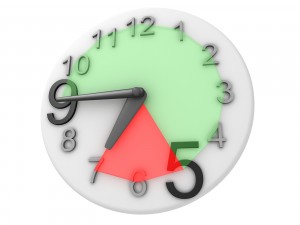
08 Sep The Benefits of Employee Self-Assessment
The Benefits of Employee Self-Assessment: Why It’s Crucial for Professional Growth
Employee self-assessment is often viewed as a secondary or optional element in the performance review process. However, it serves as a critical tool for personal and professional growth, benefiting both the individual and the organization. In this article, we’ll explore the various benefits of employee self-assessment and why it’s an essential practice for modern businesses.
Encourages Self-Reflection
One of the most immediate benefits of self-assessment is that it encourages employees to reflect on their performance, skills, and career goals. Taking time to consider your strengths and weaknesses offers valuable insights that can shape your career trajectory. Self-reflection allows for a deeper understanding of oneself, which is the cornerstone of personal development.
Enhances Goal-Setting
Effective self-assessment often involves setting new professional goals or revisiting existing ones. This goal-setting is inherently more personalized and relevant, as it comes from the employee’s own reflection on their performance and aspirations. Tailored goals, in turn, lead to increased motivation and engagement.
Also Read: What are SMART goals?
Fosters Self-Accountability
Self-assessment fosters a culture of accountability. When employees evaluate their performance, they become more aware of their responsibilities and the impact of their actions on the team and the organization. This heightened sense of ownership often leads to increased job satisfaction and productivity.
Builds a Culture of Continuous Improvement
An organization that encourages self-assessment is likely to build a culture focused on continuous improvement. When employees regularly assess themselves, they become more proactive in identifying opportunities for skills development and performance enhancement. This fosters a learning environment where both individual and organizational growth are prioritized.
Opens Up Constructive Dialogue
The self-assessment process can serve as an excellent icebreaker for more in-depth, constructive conversations between employees and managers. It sets the stage for an open dialogue where both parties can discuss performance, expectations, and future plans in a candid manner, leading to stronger employee-manager relationships.
Enables Career Development
Regular self-assessment can act as a catalyst for career development. By consistently evaluating your skills, accomplishments, and career aspirations, you can make more informed decisions about your professional path. Whether it’s deciding to take on more responsibilities, aiming for a promotion, or pursuing additional training, self-assessment provides the data needed to make these crucial decisions.
Aligns Individual and Organizational Goals
Self-assessment also helps to align individual performance goals with the broader objectives of the organization. When employees understand their role and impact, they are better equipped to contribute meaningfully to the company’s success. This alignment not only improves performance but also enhances job satisfaction.
Enhances Job Satisfaction and Retention
Employees who regularly engage in self-assessment often report higher job satisfaction. The act of taking control over one’s professional destiny, setting relevant goals, and achieving them leads to a fulfilling work experience. Higher job satisfaction often translates to higher retention rates, saving companies the cost and effort involved in hiring and training new employees.
Also Read: Questions about employee retention answered by the experts.
Our Thoughts
The benefits of employee self-assessment extend far beyond the simple act of filling out a form. It is a powerful tool for personal and professional growth, fostering a culture of accountability, continuous improvement, and open dialogue. Businesses that recognize and harness these benefits stand to gain not just in terms of individual employee performance but also in organizational success and longevity.
Also Read: Research on self-evaluation by National Library of Medicine.




